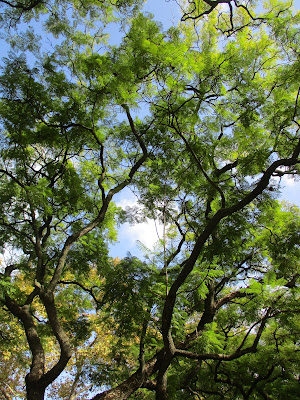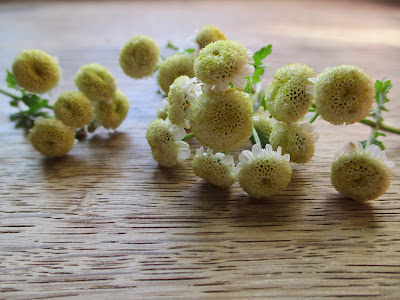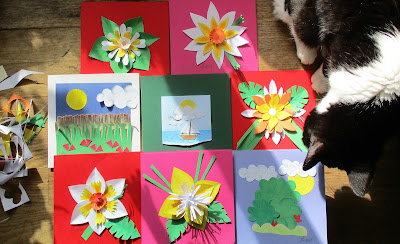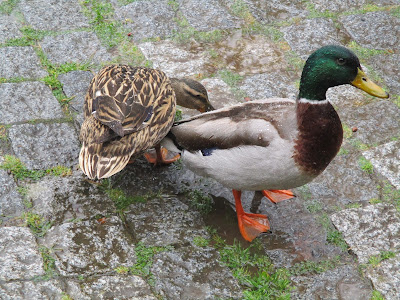
"More than conversation at the interface, it is creative assemblages like these that explore and elaborate the particular dynamic capacities that digital media afford and the ways that through them humans and machines can perform interesting new effects (...) in uniquely particular ways." Lucy Suchman (2009). Human-machine reconfigurations: plans and situated actions.
Jan 28, 2024
January
Dec 22, 2023
Dec 12, 2023
cooperation
Nov 25, 2023
unselfing
"Observing something beautiful" is "an occasion for unselfing" and it "may well hold the key to our collective survival. Because it means that our role here on earth is not simply to maximize the advantage in our lives (...). It's to maximize (protect, regenerate) all life. We are here not just to make sure we as individuals survive, but to make sure that life survives. (...) We must attempt, with great urgency, to imagine a world that does not require Shadow Lands, that is not predicated on sacrificial people and sacrificial ecologies and sacrificial continents. More than imagine it, we must begin, at once, to build it." Naomi Klein (2023). Doppelganger. Photo by Monica Pinheiro CC BY-NC-SA (CC).
Nov 12, 2023
Human rights
Nov 7, 2023
November
Oct 8, 2023
Less machines
Oct 2, 2023
October
"If we had 30 days to save the world, would we act before the 29th?" Photo by Monica Pinheiro CC BY-NC-SA (CC).
Sep 23, 2023
September
"For the eye has this strange property: it rests only on beauty; like a butterfly it seeks colour and basks in warmth." Virginia Wolf (1930) in The Essays of Virginia Wolf: volume IX. Photo by Monica Pinheiro CC BY-NC-SA (CC)
Setembro
"Feeling the touch, discovering the colour, memorizing the smell. Weaving quietly different textures and tensions. Creating peace to guide action. Liberating the mind to shape possibilities." June 2021, What can we do with what we already have?...
Sep 20, 2023
September
"(...) she could remember nothing. For all the dinners are cooked; the plates and cups washed; the children sent to school and gone into the world. Nothing remains of it all. All has vanished. No biography of history has a word to say about it. And the novels, without meaning to, inevitably lie." Virginia Wolf (1929). A Room of One's Own. Photo by Monica Pinheiro CC BY-NC-SA (CC).
Sep 10, 2023
September
Sep 9, 2023
September
Sep 8, 2023
September
Jul 31, 2023
July
Jul 30, 2023
July
Jul 19, 2023
July
Jul 18, 2023
July
Jul 17, 2023
July
Jul 2, 2023
nearness, seasonality and sustainability
navetes
Navete ou lançadeira. Portuguese words used for shuttle. "A shuttle is a tool designed to neatly and compactly store a holder that carries the thread of the weft yarn while weaving with a loom. Shuttles are thrown or passed back and forth through the shed, between the yarn threads of the warp in order to weave in the weft. The simplest shuttles, known as "stick shuttles", are made from a flat, narrow piece of wood with notches on the ends to hold the weft yarn" ( Wikipedia ).
In my tapestries I use repurposed ice cream sticks for the wool or cotton parts. For the plant parts it´s hands work, our best tool. Also in the photo, you can see two handmade wood needles, seldom used, but useful when needed more precision work.
Photo by Monica Pinheiro, free to use if you respect the license CC BY-NC-SA (CC).
Jun 25, 2023
Jun 24, 2023
Jun 21, 2023
June
Jun 8, 2023
June
May 24, 2023
May
May 15, 2023
May
May 13, 2023
May
May 12, 2023
May
"While options range from incremental changes to fundamental reform, science provides a clear warning about continuing on our current path." in Beyond growth: pathways towards sustainable prosperity in the EU, document for the European 'Beyond Growth' conference taking place next week (15 to 17 May, 2023), prepared by the Parliament, Directorate-General for Parliamentary Research Services, presenting "the economic and socio-ecological challenges facing today's society and offers a reflection on possible transition pathways and associated tools to move beyond growth in EU policies. The focus is the European Union and its Member States, with the global context integrated where relevant for understanding the status quo and discussing options." See also the brief «'beyond growth': concepts and challenges» (May 2023).
Apr 9, 2023
April
Mar 20, 2023
March
Mar 18, 2023
March
"The word integrity means moral consistency and commitment, but it also means something whole and unbroken, uninjured, and it's a quality found in many beautiful things." Rebecca Solnit (2022). Orwell's Roses. Photo by Monica Pinheiro free to use if you respect the license CC BY-NC-SA ( CC ).
Mar 15, 2023
March
Feb 25, 2023
February




























.JPG)








